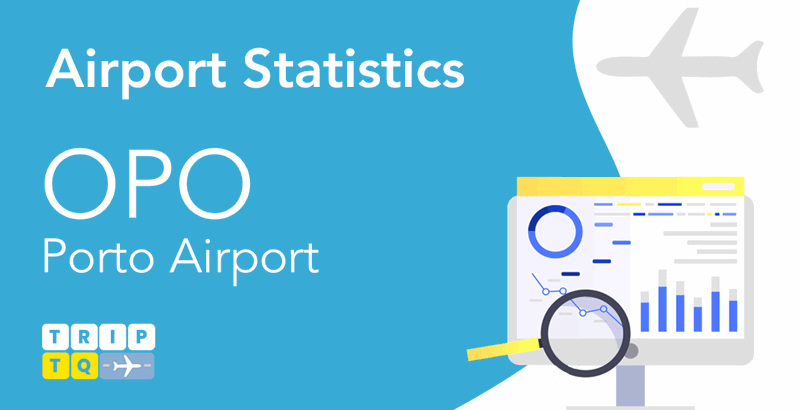
September 2023 Records a Significant 15% Drop in Passenger Numbers at Porto Airport
Porto Airport, one of Portugal's busiest, has seen a concerning drop in passenger numbers, with a 230,296 (15.43%) decline between its pre-pandemic peak in September 2019 (1,492,343 passengers) and September 2023 (1,262,047 passengers). While the pandemic undoubtedly played a role, deeper factors may be contributing to this persistent trend.
Lingering Pandemic Scars
Travel Hesitation: Residual anxieties, particularly regarding new variants, continue to deter both leisure and business travelers. This cautiousness, especially among vulnerable demographics, dampens overall passenger numbers.
Disrupted Travel Ecosystem: Airlines, still recovering from pandemic disruptions, grapple with staff shortages and operational challenges, leading to schedule adjustments, route reductions, and higher costs. This instability discourages potential flyers from seeking predictable and affordable travel experiences.
Shifting Travel Patterns: The pandemic reshaped preferences. Travelers might now prioritize domestic trips, outdoor activities, or alternative travel modes like rail, bypassing air travel altogether.
Economic Headwinds
Cost-of-Living Squeeze: Portugal's rising cost of living forces individuals and families to prioritize essential expenses over discretionary travel, impacting both leisure and business passenger numbers at Porto Airport.
Corporate Travel Cuts: Economic uncertainty leads companies to tighten travel budgets. This can significantly impact Porto, known for its strong business travel base, as companies opt for virtual meetings or regional travel.
Competition from Alternative Destinations: Portugal faces fierce competition from Mediterranean rivals like Spain or Greece, which might offer more attractive deals or be perceived as less economically impacted, drawing travelers away from Porto.
Evolving Travel Preferences
Sustainability Focus: Growing environmental consciousness encourages travelers to prioritize eco-friendly options like rail or electric vehicles, potentially impacting short-haul flights from Porto. This trend can be amplified by government policies or airport initiatives promoting sustainable travel.
Experiential Travel: The demand for unique and immersive experiences is on the rise. If Porto primarily caters to traditional leisure or business travel, it might miss out on attracting travelers seeking adventure, cultural immersion, or off-the-beaten-path destinations.
Technological Advancements: Advancements in virtual communication and remote work technologies can further reduce the need for business travel, impacting airports like Porto that rely heavily on corporate traffic.
Competitive Landscape
Shifting Airline Strategies: Airlines constantly adjust networks for profitability. Route shifts or reduced frequencies to Porto, especially for less profitable routes, can significantly impact passenger numbers.
Improved Rail Connectivity: The rise of high-speed rail within Europe poses a challenge for short-haul flights. If travelers find convenient and cost-effective train options to destinations previously served by Porto, it could impact passenger traffic.
Rise of Low-Cost Carrier Competition: While low-cost airlines have been crucial for Porto's growth, their focus on cost-sensitive travelers makes them vulnerable to economic downturns. If travelers prioritize cheaper options or alternative destinations, Porto might lose ground to competitors offering better deals.
Operational Challenges
Disruptions and Delays: Technical issues, air traffic control delays, strikes, or weather events lead to cancellations and delays, frustrating passengers and eroding trust in the airport's reliability. This discourages travelers, especially for time-sensitive trips.
Staff Shortages and Service Issues: Airport and airline staff shortages can lead to longer check-in times, security queues, and baggage delays, impacting the passenger experience. Poor service quality can deter travelers from returning.
Outdated Infrastructure and Amenities: Compared to modern airports, Porto might fall behind in infrastructure efficiency, passenger comfort, and amenities. This can make the airport less attractive to travelers compared to more modern competitors.
Local Factors and Events
Political and Economic Climate: Portugal's political and economic stability can influence travel decisions. Uncertainties or negative events can deter travelers, especially those unfamiliar with the region.
Local Events and Disruptions: Major events or disruptions in Porto, like strikes or festivals, could temporarily deter passengers during specific periods, skewing overall passenger numbers. However, these factors are often temporary and might not significantly impact long-term trends.
Destination Appeal: Porto's relative appeal compared to other European destinations plays a role. If nearby cities offer more diverse attractions, competitive pricing, or a more vibrant atmosphere, they might attract travelers away from Porto, impacting its overall traffic.

FREE Cancellations, NO card fees!

Value Options View Offers
Useful Information about Porto Airport

Porto Airport witnessed a remarkable 16.74% increase in passenger volume in October 2023 with 1,430,202 passengers compared to the same month in 2019.
View...
Porto Airport Passenger Traffic Exceeds Pre-Pandemic Levels with 16.52% Surge in Q3 2023
View...
Porto Airport stands out with a remarkable recovery. In August 2023, this hub recorded an 18.14% increase in passenger numbers compared to the same month in the pre-pandemic year of 2019...
View...
Porto Airport Q2 passenger record registers a 17% year-on-year increase. Additionally, the airport has surpassed pre-pandemic figures by an admirable 16%.
View...